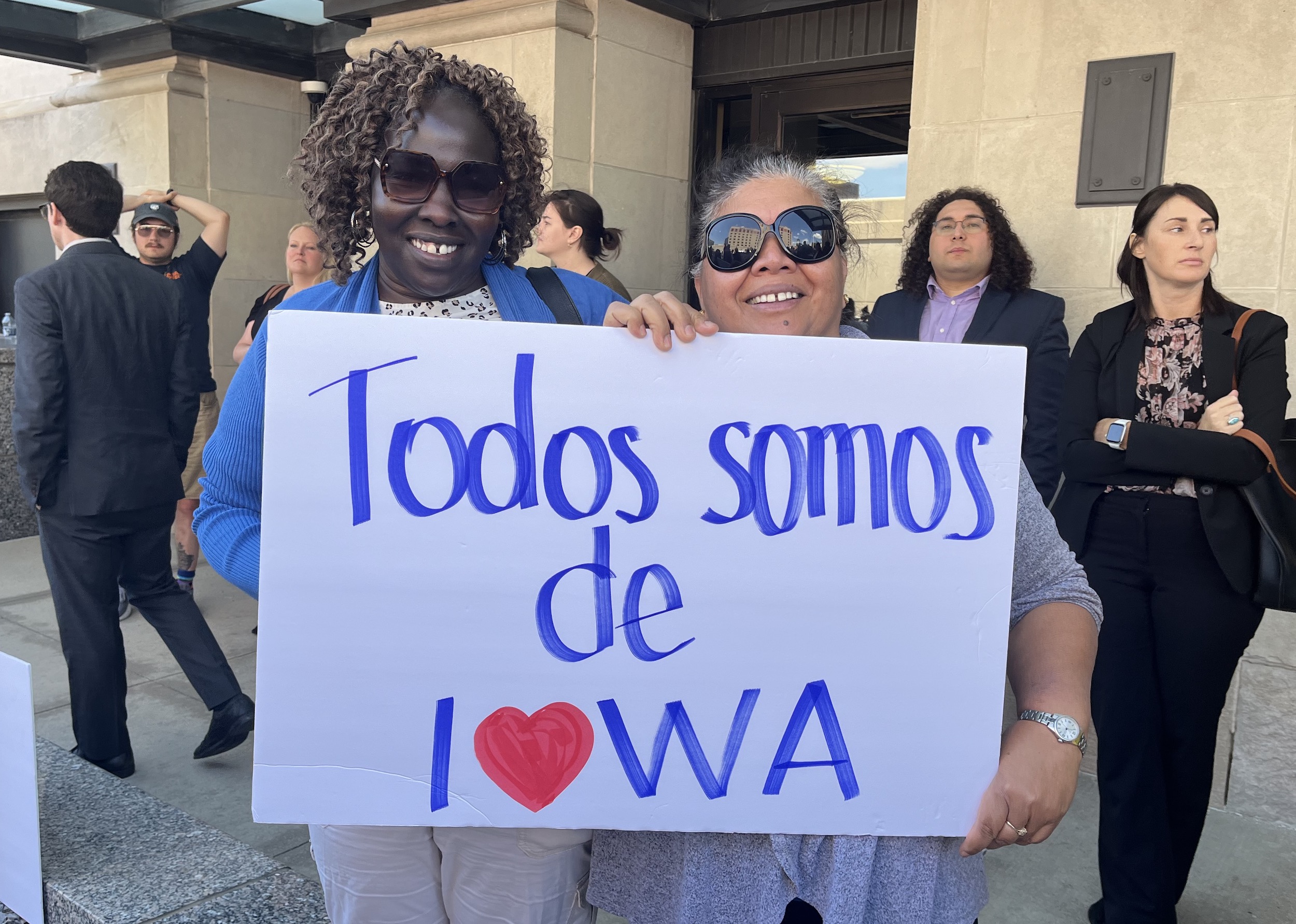Al Charlson is a North Central Iowa farm kid, lifelong Iowan, and retired bank trust officer. The Bremer County Independent previously published a version of this commentary.
From the time our forefathers broke the prairie sod and began building communities Iowans have been known as hard workers who took pride in a job well done. Stories of my Norwegian immigrant great-grandfather highlight his ability to stack grain bundles perfectly to protect the shock from rain, and to plant corn in rows straight as an arrow.
We recently had windows replaced and our house re-sided by a north central Iowa contractor whose reputation was endorsed by a family member. The contractor has a branch in central Iowa, and a Des Moines area siding team was assigned to our house. The entire team was Hispanic; the only one I could communicate with was the team leader, José.
I had a chance to watch them at work while I was doing yard work. Their efficient and effective coordination as a team was fascinating. (I really liked the music they were playing on the radio while they worked, but I must admit that one year in Mr. Kim’s high school Spanish class 62 years ago did not equip me to understand the lyrics!)
While they were working, I called the company about changing the planned design for one part of the house for appearance purposes. The final decision came down to whether José agreed it could be done. He did, and it was. Without question, these recent immigrants upheld the tradition of the Iowa work ethic.
Iowa business leaders consistently report that our workforce shortage is the biggest challenge they face in trying to maintain or expand their operations. It makes sense for our state to welcome hard-working immigrants who are applying their strong work ethic to tough, necessary jobs from construction to livestock production to meatpacking.
Instead, this year Republicans in the Iowa legislature passed Senate File 2340 to expand the authority and responsibility of Iowa law officers into the enforcement of U.S. immigration law.
Under the U.S. Constitution, the development and enforcement of immigration law is a federal responsibility. Governor Kim Reynolds revealed the new law’s political purpose in a statement released when she signed Senate File 2340 in April.
The Biden Administration has failed to enforce our nation’s immigration laws, putting the protection and safety of Iowans at risk. Those who come into our country illegally have broken the law, yet Biden refuses to deport them. This bill gives Iowa law enforcement the power to do what he is unwilling to do: enforce immigration laws already on the books.
Speaking to reporters about the law in early May, Reynolds said, “it just, it sends a message.”
Iowa law enforcement leaders across the state are very concerned about one message it sends. In communities with significant immigrant populations, local police officers have worked hard to build working relationships based on cooperation and trust. Those relationships will be at risk if the state is able to enforce Senate File 2340. [Editor’s note: Two federal lawsuits are seeking to block the immigration law as unconstitutional before it takes effect on July 1.]
At the heart of the current challenges at our southern border are U.S. and international laws. Currently a person can request amnesty (seek refuge) in our country if they have suffered or have a well-founded fear of suffering threats of loss of life or freedom in their home country on account of “race, religion, nationality, or membership in a particular social group, or political opinion.”
That is reality for people in some Central or South American countries ruled by brutal corrupt autocrats and/or criminal gangs. The U.S. should clarify amnesty rules and give Customs and Border Patrol more resources for enforcement and administration. But we must proceed carefully.
For much of our history the U.S. welcomed immigrants (at least from Europe). In the early 1920s, Congress passed tight immigration quotas primarily intended to block Jews and Catholics from southern and eastern Europe. U.S. Representative Albert Johnson (Republican of Washington) introduced those bills, saying at the time, “The greatest menace to the Republic today is the open door it affords to the ignorant hordes from Eastern and Southern Europe, whose stream of alien blood is poisoning our nation.”
As Hitler’s extermination of the Jews was ramping up, thousands of Jews were denied entry into our country due to those quotas. Among them was Otto Frank, a Jewish German businessman. He tried in 1938 and again in 1941 to obtain visas for his family to come to the U.S. and was denied. After hiding for two years in an attic in Amsterdam, the family was discovered in August 1944. Otto Frank’s wife and two daughters, including Anne (then age 15), died in Auschwitz and Bergen-Belsen.


1 Comment
Well said
ME. The Congressman from NW Iowa, Feenstra hasn’t gotten the message ⬇️ His ads on local TV sound as if brown-skinned migrants are arriving to Iowa in masses so large and threatening that we all should call the local police to deport them. That’s Trump’s plan too.
Nice essay. We’re the choir here. How to get message to all Iowans?
“Iowa business leaders consistently report that our workforce shortage is the biggest challenge they face in trying to maintain or expand their operations. It makes sense for our state to welcome hard-working immigrants who are applying their strong work ethic to tough, necessary jobs from construction to livestock production to meatpacking.”
Gerald Ott Wed 12 Jun 12:13 PM